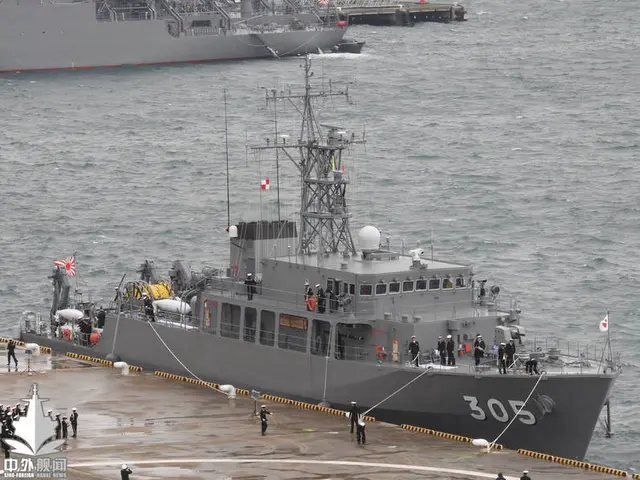Dramatic developments have taken place since the Syrian summit in Sochi last November, which was preceded by a meeting between Russian President Vladimir Putin and his Syrian counterpart Bashar al-Assad. At the meeting, which came on the eve of a scheduled summit between the presidents of Russia, Turkey, and Iran in the Russian Black Sea resort to discuss the Syrian issue, Putin repeated his call for a negotiated political settlement to end the Syrian conflict.
"I think now the main thing is to move to political processes, and I am pleased to see your readiness to work with everyone willing to establish peace and find solutions," Putin told Assad at the time.
November 22, 2017: (From left to right) Iran's President Hassan Rouhani, Russia's President Vladimir Putin, and Turkey's President Recep Tayyip Erdogan shake hands during a Sochi trilateral meeting to discuss prospects for Syrian peace process, Russia. / VCG Photo.
However, the summit did not lead to a real breakthrough that would establish a peaceful solution in Syria, because the United States worked to block any political settlement by consolidating its occupation of the eastern Euphrates and pushing Turkey to intervene and occupy parts of northern Syria, including Afrin.
Recent developments have seen the Syrian army ending the terrorist presence in Eastern Ghouta, despite disinformation campaigns from the media in the US and Europe which targeted both Syria and Russia, as well as the dangerous escalation between Russia on the one hand and the United States and Europe on the other.
Will the upcoming summit on Syria, which brings together the presidents of Russia, Turkey and Iran, lead to long-awaited results in reaching a peaceful solution in Syria without the US and Europe?
United Nations Special Envoy for Syria Staffan de Mistura (C) delivers a speech during the Syrian National Dialogue Congress in Sochi, Russia, January 30, 2018. /VCG Photo.
Despite the coordination between these countries during the meetings of Astana, which led to some positive results, including the agreement on de-escalation zones, the expected results of the next summit will not be more promising than the previous one for several reasons, including:
-
There is a contradiction in the strategic objectives between Russia and Iran on the one hand and Turkey on the other. NATO member Turkey is implementing the same American project in Syria, hence supporting terrorist armed groups such as Ahrar al-Sham and al-Qaeda linked entities.
-
The war in Syria reflects the regional and international conflict and the differences in the projects and interests of big powers. Any peaceful solution requires at least a Russian-American consensus, and such an agreement is unavailable at the moment. On the contrary, the existing situation with a serious escalation may lead to an uncontrollable explosion in the region.
-
The European Union is not an independent political force. Unfortunately, it implements the US policies and its role is linked to the American role.
A Syrian woman runs with her child for cover following Syrian government's air strikes on the rebel-held enclave of Douma, on the outskirts of the capital Damascus, Syria, March 20, 2018. /VCG Photo.
Washington recognizes that the victory of Syria and its allies in this war will lead to a decline in its influence in the Middle East at the expense of the growing strength and influence of Russia, which could redraw the geopolitical map in the region and lead to the emergence of a multipolar world system that ends the American hegemony.
President Donald Trump has announced that the US intends to withdraw its forces from Syria, but the statement does not reflect the reality and therefore is worthless, as the US is strengthening its forces at the Al-Tanf base in Syria and working with Turkey to extend the crisis and spread the chaos in the region.
Syria and its allies have accumulated military achievements in the fight against terrorism and are working positively together to facilitate a peaceful solution by offering political initiatives and reconciliations. However, the next stage may witness a serious escalation and confrontation with US and Turkish forces gradually, if they do not end their occupation of areas in the east and north of Syria.
Abdulhamid Yusuf, who lost 19 members of his family, including his wife and two children, visits the graves of his relatives in Khan Shaykhun, March 31, 2018. /VCG Photo.
Abdulhamid Yusuf, who lost 19 members of his family, including his wife and two children, visits the graves of his relatives in Khan Shaykhun, March 31, 2018. /VCG Photo.
The Syrian people hope that the Syrian army and its allies will be able to rid the Syrian territory of terrorism and occupation, end the humanitarian suffering caused by the war, and begin the country's reconstruction. They wish that the recent developments after the liberation of Eastern Ghouta would lead to a political settlement.
However, the worsening of regional and international struggles indicates that reaching a peaceful solution requires a regional and international agreement, and a balance between geopolitical powers, which might take several years.
(CGTN)
 简体中文
简体中文

